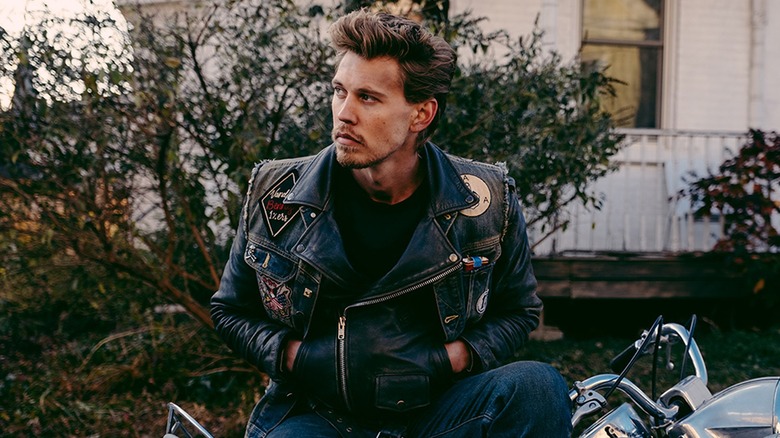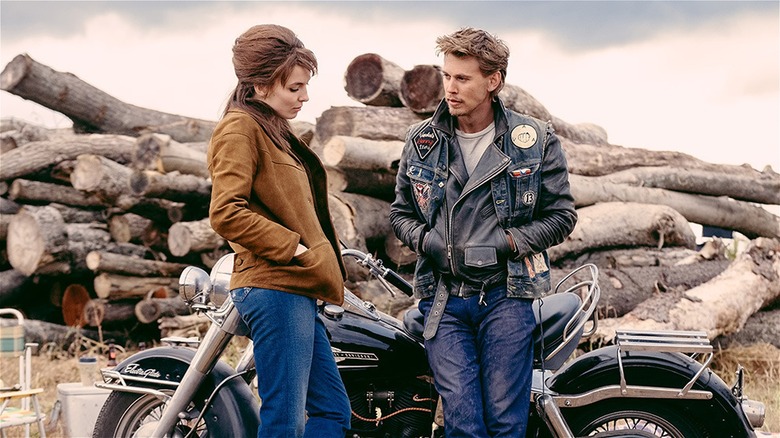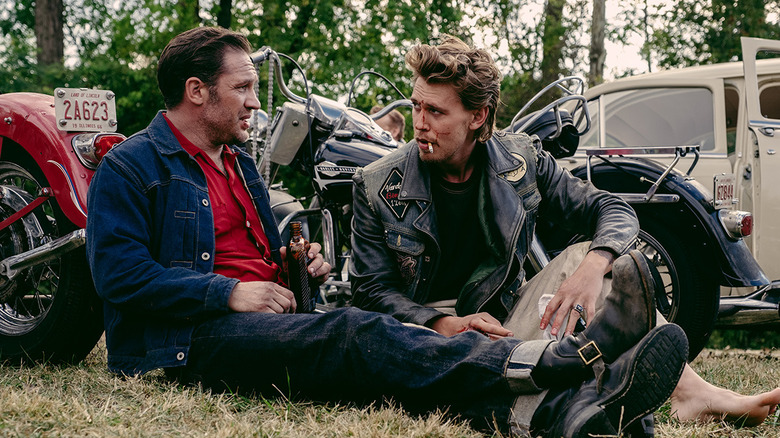The Bikeriders Review: Stylish Drama That Will Tire You Out Quickly
- Solid performances from the whole ensemble
- Looks as captivating as the images in Danny Lyons' book
- Doesn’t add anything new to biker gang clichés
- The crime drama is less interesting than the characters — but they're not explored in depth
In one pivotal flashback sequence during "The Bikeriders," we learn that Johnny (Tom Hardy) got the inspiration to form an outlaw motorcycle club after catching a rerun of Marlon Brando in "The Wild One." When it was first released in 1953, that film ignited moral panics — even getting banned in the U.K. for 14 years — and set the culture ablaze, establishing an aesthetic template that several rock icons later in the decade would utilize themselves. This cultural context means there's an inherent silliness to the sight of a man nearing middle age catching up to it years after it had left the zeitgeist, aiming to experience the thrills which eluded him in his youth by forming a gang of his own.
Setting "The Bikeriders" in 1965 — when it was too late to look cool emulating Brando and too early to be a part of the "Easy Rider" countercultural revolution — should give director Jeff Nichols' long-gestating passion project more of a unique lens on a subculture in its waning years of popularity, and the drifters who still wanted to be a part of it. Instead, in ways which should have been expected from a movie adapted from a photo book, the movie is too caught up in trying to recapture the gritty street styles of those two eras to properly interrogate the group living in the middle of them.
Familiar biker clichés
Make no mistake though; Jeff Nichols' film is beautifully shot, successfully recreating several of the striking images from Danny Lyon's book — many of which we see as a glorified slideshow over the end credits. A number of the characters were inspired by real figures interviewed within the book as well, with several interview sequences here copying the dialogue near-verbatim. Yet the heart of the very loose story is what Nichols has likened in interviews to a non-romantic "love triangle" with two very different forces vying for the undivided attention of Benny (Austin Butler). This mysterious biker has the immediate allure of a Marlon Brando or a James Dean, so it's little surprise that housewife Kathy (Jodie Comer) separates from her husband and shacks up with him mere weeks later, hoping he'll eventually tire of the outlaw life. But with Benny under the influence of Tom Hardy's Johnny, keen to expand the group's influence beyond the county and dominance over clubs further afield, he seems unable to distance himself from the simple joys of riding and fighting.
The famous line from "The Wild One," where Brando's antihero retorts "Whaddya got?" when asked what he's rebelling against, has been interpreted somewhat literally by Nichols. As embodied by Butler, an actor whose every glance oozes charisma, Benny is initially a captivating strong-silent type who speaks very few words but makes every last syllable count — even if he's only ever going to threaten you with violence or a good time. Butler makes the most out of this material, but there's very little on the page which isn't a facsimile of the aforementioned screen icons or cultural stereotypes of bikers; we never get the sense of whether he is aimlessly rebelling against society thanks to the thin characterization, which very quickly sees him transform from mysterious to boring before our very eyes. It's a credit to Butler that it takes longer for this illusion of a much richer character to shatter than it would in another performer's hands.
Needs more life beyond the bikes
Tom Hardy's club leader is far more intriguing due to the glimpses of a mundane domestic life which stand in stark contrast to his evening and weekend outings with the boys, cracking beers and heads on the highway. But that's all these richer signs remain: glimpses of a more interesting drama, which would better interrogate the relationships these men have with day-to-day domesticity and the hobby that has become an all-consuming obsession. As the story traverses into more straightforward crime drama territory — with rival factions and aspiring bikers jostling for dominance over the club — the kitchen sink realism that adds some distinction to these cultural clichés fades further. This also largely comes at the expense of spending more time with Jodie Comer, whose mastery of the nails-down-the-chalkboard accent of her real-life inspiration easily puts her in a class above her male co-stars. It's thanks to the framing device of Danny Lyons (played here by Mike Faist) interviewing subjects for his book that we get as much of her within the movie as we do, as her recollections start appearing more infrequently the further removed from the crime drama her character becomes.
Jeff Nichols' utilization of this framing device can feel unfocused, not knowing whether to hone in on one specific interview which contextualizes the hyper-masculinity from a female perspective, or to include a wider array of voices from the book which he only includes intermittently. One of the best moments is actually from the latter camp, with Nichols' frequent star Michael Shannon appearing as — what else? — a grizzled biker, quizzed on his hatred for any man who'd go to college rather than work with his hands. It's the rare moment that gets under the skin of the men associated with this subculture at the time, drawn into its orbit for reasons beyond recapturing the glory days of their youth which never were. And yet, despite several interview subjects in a similar vein within the source material, Nichols largely leaves this well untapped. His conventional gangland drama spun out of it might be a much more commercial proposition, but staying strictly within Danny's viewpoint, discovering the hidden damage of these men alongside him, would have made for a far richer drama.
In interviews, Nichols has spoken of biker gangs being an early indicator of how tribalized American culture would become, and I left "The Bikeriders" wishing that I'd seen the more incisive movie he speaks about, which unfortunately only exists within his own head. It looks beautiful, and there are no weak links within the stacked ensemble, but it winds up feeling alarmingly empty. Just flick through Lyons' book instead — any photo you land on will have more depth than the vast majority of scenes here.
"The Bikeriders" hits theaters on June 21.


